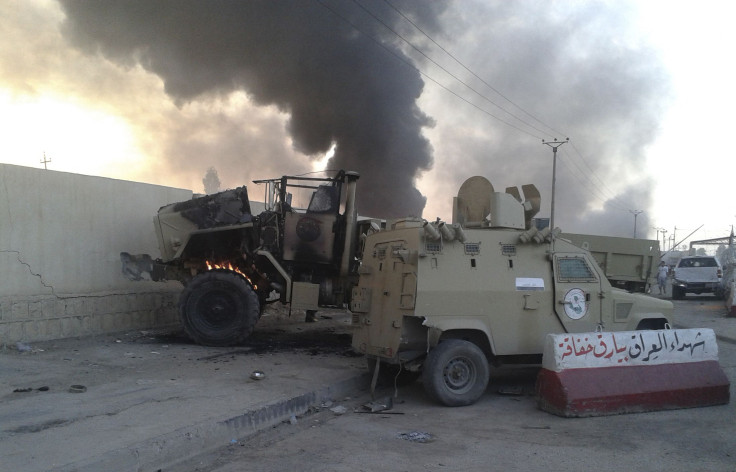ISIL Seizes Nineveh And Kirkuk After Taking Mosul In Advance Toward Baghdad While US Demands Action From Iraqi Leaders

Last paragraph in story corrected to reflect the correct composition of religious affiliations in Iraq.
Iraq’s Prime Minister Nuri al-Maliki urged parliament to declare a state of emergency in the country as the Islamic State of Iraq and the Levant, or ISIL, militant group seized Nineveh province and the city of Kirkuk in northern Iraq, after taking control of Mosul on Tuesday.
The advance by ISIL after it took over Mosul, the second-largest city in Iraq and capital of Nineveh province, has reportedly forced more than 150,000 people to flee the region. A parliamentary speaker told media that the militants were now heading south toward Salaheddin province, which lies to the north of Baghdad, while Maliki reportedly said that the government would arm civilians who wish to defend their region and “defeat terrorism.”
"We will not allow Mosul to be under the banner of terrorism, We call on all international organisations to support Iraq and its stance in fighting terrorism. The entire world will suffer if terrorism spreads," Maliki said, according to Al Jazeera.
The U.S. Department of State, in a statement, condemned the latest offensive by ISIL, a Sunni jihadist group, and said that its advance had to be stopped.
“Senior U.S. officials in both Washington and Baghdad are tracking events closely in coordination with the Government of Iraq, as well as Iraqi leaders from across the political spectrum including the Kurdistan Regional Government (KRG), and support a strong, coordinated response to push back against this aggression,” Jen Psaki, a spokesperson for the U.S. State Department said, in a statement, Tuesday, adding: “It should be clear that ISIL is not only a threat to the stability of Iraq, but a threat to the entire region.”
The U.S. will provide "some security assistance" to the Iraqi government, White House spokesman Josh Earnest said, according to the Guardian, before calling on Iraqi leaders, including Maliki, to "step up to the plate" and take responsibility.
Meanwhile, a former Iraqi ambassador to the United Nations, told Al Jazeera that members of the former Iraqi army could also be involved in the attack.
“I'm hearing sort of word from Baghdad that is quite possible that there are elements of the former Iraqi army that is to say army before 2003 that may be involved in the event in Mosul, and actually it is gone beyond Mosul," Feisal Istrabadi said, according to Al Jazeera.
Iraq, a Shia-majority country governed by a Shiite-dominated administration out of Baghdad, has a Sunni-majority population in the country's west and has been torn by sectarian strife. More than 15,000 civilians have reportedly been killed in violent clashes between government forces and militant groups in the region since November 2012, while according to the U.N., nearly 9,000 people were killed in 2013 alone, making it the deadliest year for the country in the past five years.
© Copyright IBTimes 2024. All rights reserved.












